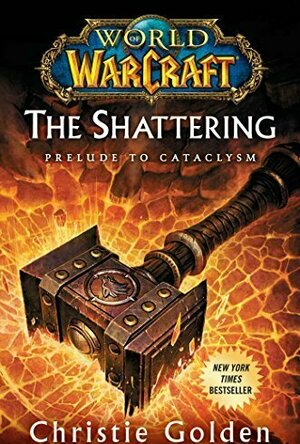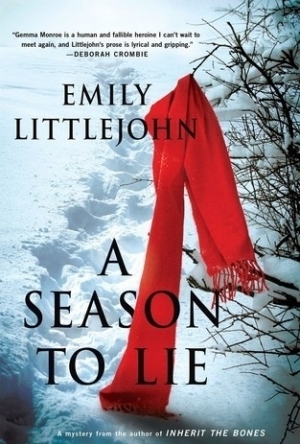
Kids Yogaverse: I AM SUN, I AM MOON
Health & Fitness and Book
App
Kids Yogaverse introduces a complete Sun and Moon yoga flow just for kids! I AM SUN, I AM MOON...

Life Period Tracker, Health, Calendar, Ovulation
Health & Fitness and Lifestyle
App
Life Period Tracker lets you track your period, predict your ovulation, schedule cycle reminders,...

WaterMinder®
Health & Fitness and Medical
App
Loved by thousands of users all over the World. Get help with WaterMinder®, an easy, intuitive app...

Wild Animals Online(WAO)
Games and Entertainment
App
Welcome to the best animal game, Wild Animals Online (WAO) "Go fight! If you don’t fight,...
<a href="https://diaryofdifference.com/">Blog</a>; | <a href="https://www.facebook.com/diaryofdifference/">Facebook</a>; | <a href="https://twitter.com/DiaryDifference">Twitter</a>; | <a href="https://www.instagram.com/diaryofdifference/">Instagram</a>; | <a href="https://www.pinterest.co.uk/diaryofdifference/pins/">Pinterest</a>;
#8 <a href="https://www.goodreads.com/review/show/3099365981">The Shattering: Prelude to Cataclysm</a> - ★★★★★
<img src="https://diaryofdifference.com/wp-content/uploads/2020/05/Book-Review-Banner-51.png"/>;
The The Shattering: Prelude to Cataclysm by Christie Golden is the eighth book in the World of Warcraft series. The series covers the lore of the characters that are featured in the popular video game World of Warcraft. This is the first book of the series I have read, as they can be read as standalones too. After reading it, I definitely want to read the rest of the series as well!
I received this book as a Christmas gift from my boyfriend, as we both enjoy the World of Warcraft video game. We played together for a while, but then stopped playing retail and started to play again when the Classic WoW came out. I am familiar with most of the lore in the game, but reading a full book about something that happens during this game (in this case - Cataclysm) is a whole new level of epic!
The Shattering has a focus on the events that happen before the Cataclysm, and the events that actually lead to it, from various character's perspectives, from both the Horde and the Alliance. We get to see the character's perspectives, choices and how even small things have a big impact on what's about to happen.
Get ready to meet some legendary characters:
<b>Thrall, the Shaman</b>
When Thrall discovers the elements no longer heed the Shaman's call, he has to travel back to his birth place to seek answers, while leaving the leadership of the Horde with the orcs.
<b><i>"Nature has its own rhythms and reasons. It does not adapt to suit us - we must change to accommodate it."</i></b>
<b>Garrosh, the Orc</b>
Great warrior with a fiery attitude, Garrosh is now in charge of the Horde while Thrall is away. Then the hostility with the Alliance starts to grow. Garrosh's approach is different that what Thrall would have done, and things are about to get more heated.
<b><i>"But it is a work of a leader to hold all possibilities, even the unpleasant - even the unthinkable."</i></b>
<b>Prince Anduin</b>
Anduin finds himself conflicted about who he is and what his purpose is, when a new adventure starts for him. With the help of Jaina and other amazing characters, he slowly begins to realise where he truly belongs.
The story was amazingly written and very powerful! From the very first chapter, I was invested in the characters and the plot. I kept turning page after page until I finished the book. The characters are very much alive and real. They were all different in their own way which is quite hard to accomplish with so many characters involved. I think what I loved the most was how each character had their own purpose, choices to make and a lesson to learn. Even when wrong choices were made, the characters had their own valid reasoning behind their choices.
<b>I highly recommend The Shattering if you are a fan of World of Warcraft, but also if you love adventure books and stories that tackle the battle between good and evil.</b>

Assistant Coach Volleyball
Sports and Productivity
App
Assistant Coach Volleyball is the most complete and professional app for volleyball coaches to...

Monkey Junior: kids learn to read English, Spanish
Education
App
Monkey Junior is currently #1 popular learn to read program with millions of happy learners and...
BankofMarquis (1832 KP) rated Avatar: The Way of Water (2021) in Movies
Jan 2, 2023
It’s too bad the story (and characters) lag far behind.
Taking the audience back to the world of Pandora, AVATAR: THE WAY OF WATER treads familiar territory as Director James Cameron returns us to this idyllic planet, with the natives living peacefully, in concert with the land, until the soldiers from Earth show up (again) to strip the planet of it’s native contents (again).
Cameron (TITANTIC) expands this 3D World, bringing the audience from the trees to the water - and what an expansion this is! It is a BEAUTIFUL film to watch and Cameron (as one would expect) expertly pushes the technological edges of the industry, bringing us stunning visuals underwater. It is this part of the more than 3 hour film that is worth the price of admission alone. It is a feast for the eyes.
But what Cameron (and his FOUR writers of the script - never a good sign) fail to do is to add interesting characters and stories to these amazing visuals. It is a pretty straight forward telling of Good (the native peoples) vs. Evil (the invading soldiers from Earth). There is no nuance or subtly whatsoever throughout this film.
Back from the first film are Sam Worthington (just as wooden and uninteresting), Zoe Saldana (just as underused) and Stephen Lang (just as one-note as the villain). Obviously, it is just their voices used - for they are all rendered as Pandorans via motion-capture - but they don’t have much to do except be one with the nature (the good guys) or destroy nature (the soldiers).
Joining the cast - and just as underused - are Cliff Curtis, CCH Pounder and, especially, Kate Winslet. Cameron brings in some really fine performers who have to spout wooden dialogue that would make George Lucas blush - all the while performing in motion capture suits. This movie could have been so much better had Cameron given these actors something better and more interesting to do.
The only exception to this is the young actress (so I thought) that portrayed Kiri - who is the daughter of the Sigourney Weaver character from the first film. This Pandoran was born under mysterious circumstances (Virgin birth? Do we have a Messiah?) and is more in tune with the nature of the world they live in. This young actress had the most interesting things to do and she absolutely nailed it, so I should not have been surprised to find out that this “young actress” was none other than - Sigourney Weaver.
Well done, Cameron and Weaver. You got me on this one.
This film (the second in what will be a trilogy - or maybe more) has a run time of over 3 hours - so be warned - but Cameron keeps things moving along at a sprightly pace, never lingering over the clunky dialogue, but stopping to watch the beautiful visuals along the way.
AVATAR: THE WAY OF WATER is worth watching for the water and the stunning visuals…but not for much else.
Letter Grade: B+ (10 for the visuals, 5 for the story)
7 1/2 stars (out of 10) and you can take that to the Bank(ofMarquis)
Kristy H (1252 KP) rated A Season to Lie in Books
Jan 10, 2018
I very much enjoyed Emily Littlejohn's first Gemma Monroe novel, Inherit the Bones, and was really excited to see the second one come out. It's always exciting to see a realistic female detective portrayed in literature. Gemma is much the same in this second foray--practical and levelheaded. She's back to work after the birth of her daughter, Grace, with whom she was pregnant in BONES. The novel does a great job of portraying a working, breastfeeding mom and giving us a realistic look at the struggles a mom faces when juggling work and motherhood. As a mother who went back to work when her own daughters were young and faced a harried schedule, I really appreciated that about this novel.
Thankfully, I did not encounter a dead body on my first day back, just a lot of meetings! Gemma, of course, takes it all in stride, as she cannot help but enjoy the thrill of the hunt. The novel gives us a lot of reflection and thoughts from Gemma. I'd call this one a bit of a slow-burner. I read it while busy and it took me nearly a week. The storyline wasn't one that had me itching to pick it up and see what happens--there's several divergent plot lines and none feel particularly urgent or overly suspenseful.
A pervasive weariness almost overlays the pages--a reflection of the weather (think snow, all the time) and Gemma's general fatigue as she faces returning to work while juggling having a tiny baby at home. That's not to say the book isn't interesting, because it certainly is. Especially when the case starts to intersect with Gemma and Finn's personal lives--which isn't surprising, considering they are small town police officers/detectives. The Grimm storyline is a bit of a bizarre concept and the resolution, while a total surprise to me, was a bit anticlimactic. A few of the plot threads do tie up a little too easily, but the main case befuddled me throughout the entire novel, so kudos to Littlejohn for that. I had some suspicions, but she convinced me to cast them aside, so I'm always pleased when that happens.
What I enjoyed most about this book was Gemma herself. It's probably obvious that I identify with and like her--I enjoy her steadfast character, even though she also has bouts of anxiety and uncertain times. Seeing her as both a mom and working detective was great. This being a second novel, we're gaining enough recurring characters (Gemma, Finn, Gemma's partner/quasi-husband, Brody, Gemma's grandparents, a few other townspeople) that you recognize them and their quirks. Another plotline is left a bit unresolved, leading me to hope that a third Gemma novel is in the works. Even though this wasn't the most exciting of all mysteries, I found it solid and enjoyable, much like its protagonist. I'd certainly read any Gemma Monroe novel I could get my hands on. 3.5+ stars.
I received a copy of this novel from the publisher and Netgalley (thank you!) in return for an unbiased review.
Hazel (1853 KP) rated Touching the Rock: An Experience of Blindness (Notes on Blindness Film Tie-in) in Books
May 23, 2017
It is not often a blind man writes a book, and “write” is a word used due to the lack of a better. John M. Hull gradually lost his sight, registering as blind in 1980, a couple of days before the birth of his son. Although anticipating the event, John struggled to come to terms with his new circumstances and adjust to a new way of living. From 1983 through to 1985, John recorded his thoughts on tape, in diary form, as a way to ascertain and understand his predicament. Originally titled Touching the Rock (1990), John’s book has been republished as Notes on Blindness after the release of the film of the same name.
Initially, John made recordings every day, dictating the everyday occurrences he encountered. Amazingly, despite his disability, John was able to continue as a university lecturer and delve deeper into the world of theology. The way John thinks things through as he speaks reflects his academic abilities. Although he may have despaired at the thoughts of not being able to see his children, he had a fairly positive outlook on life.
John’s thought capacity and religious ideology are evident in his assemblage of diary entries. As a blind person, he learns to see the world in an alternative way, and often feels closer to God as a result. Through these new experiences, John begins to see the light despite the darkness.
The metaphorical descriptions of blindness help the reader to understand the horror and difficulties not being able to see visually provokes. This is heightened by John’s recordings of the bad dreams he often suffers, in which he is able to see. His fixations on these dreams are assumedly a fascination with visual imagery, which he does not have access to in his waking life.
It is hard not feel sorry for John as he reports the conversations he has with his young children. The effort to communicate and play with them is far greater than a seeing parent. Remarkably, as John begins to adjust to his new lifestyle, his children take the situation in their stride.
Notes on Blindness is also an educational narrative for those without sight problems. John explains the things other people, in attempts to be helpful, do that result in making things far more confusing for John as he tries to navigate his way from one place to another. Despite what most think, blind people are fairly good at walking routes they are familiar with, and, with the help of a stick, can safely travel through new areas. Once people start shouting instructions, it is difficult to pay attention to the location and listen to everyone else at the same time.
John’s voice is extremely articulate, and his thoughts profound, which may suggest heavy editing when compiling the recordings into written form. However, as he is an academician, his eloquence of speech does not feel forced or faked.
Notes on Blindness remains the same as the original publication but with the added inclusion of an introduction by Cathy Rentzenbrink, and an epilogue by his wife Marilyn, written in 2016, a year after his death. These, the latter in particular, provide an insight into how John’s blindness affected those around him and emphasises what a truly remarkable man he was.
Of the many memoirs available on bookshelves today, Notes on Blindness is a truly unique publication. It is not telling a story, or recounting a well-lived life, but gives great insight into the world of the blind. As John’s thoughts were not originally recorded with intention of being available to everyone, they are all the more personal and honest, provoking emotion and providing the reader with a new way of seeing. It is a book that will stay with you for a very long time.



